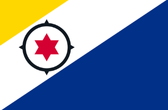
Call 0330 880 3600 Calls may be monitored or recorded. Opening Times.
- TRAVEL INSURANCE
- COVID-19 COVER
- More Options
- Help & Advice
- Existing Customers

Call 0330 880 3600 Calls may be monitored or recorded. Opening Times.

Need help?
UK Customer Services0330 880 3600*
Open Monday to Friday 9:00am to 6pm, Saturday 8:30am to 4pm and closed Sundays.
*Calls are recorded for training and quality purposes.

Official name: Bonaire
Capital city: Kralendijk
Languages spoken: Dutch, Papiamentu, with English and Spanish widely understood
Population: Around 22,000
Currency: United States dollar (USD)
Time zone: GMT-4
Driving side: Right
Climate: Arid, sunny, and warm year-round with steady trade winds; outside the main hurricane belt
Bonaire is part of the “ABC Islands” (Aruba, Bonaire, Curaçao) just north of Venezuela. It’s a diver’s paradise, with colourful coral reefs and marine life accessible straight from the shore. The island’s dry climate, easy-going vibe, and focus on sustainability make it popular with nature lovers and eco-conscious travellers.
Bonaire is a flat, coral island with a rugged eastern coastline and gentler western shores where most beaches and resorts are found. Inland, you’ll find salt pans, cactus scrub, and Washington Slagbaai National Park, which protects iguanas, flamingos, and native birds. Being outside the main hurricane belt, the island enjoys steady sunshine with only brief rainy spells, usually between October and January.
Getting around is straightforward. Driving is on the right, and visitors can rent cars or scooters with a valid licence. Roads are generally good but can be slippery when wet. Taxis are available but not metered, so agree fares in advance. Petty theft such as bag-snatching does occur, particularly from beaches or parked vehicles—keep valuables secure and avoid leaving belongings unattended.
As a special municipality of the Netherlands, entry follows Dutch rules. UK, EU, US, Canadian, and many other nationals can stay visa-free for up to 90 days. Passports should be valid for at least six months from the date of entry. Longer stays or residency require prior approval from Dutch authorities.
The official currency is the US dollar (USD). ATMs are widely available, and credit cards are accepted in hotels, dive shops, and restaurants. Smaller cafés, markets, and independent operators may prefer cash, so carrying some is useful.
Healthcare is adequate for routine care, with a hospital in Kralendijk and several clinics, but serious cases may require evacuation to Curaçao or the US. Comprehensive travel insurance with medical cover is essential, as GHIC/EHIC cards are not valid here.
Mosquito-borne illnesses such as Zika, dengue, and chikungunya have been reported—use insect repellent and cover up. Sun protection and hydration are key in the hot, dry climate. Emergency services can be reached by dialling 911.